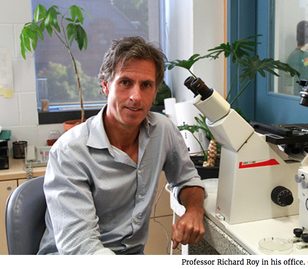Acute starvation and its transgenerational toll: linking epigenetic modification to germline integrity During the winter of 1944/45 occupying Nazi troops rationed a small population of Dutch inhabitants to approximately 1000 calories/day. Later in life, the children that were conceived during this period were found to have an abnormally high frequency of a number of disorders ranging from obesity to schizophrenia. Differences in the DNA methylation patterns between siblings suggest that the resulting disorders may be epigenetic in nature and that the experience of this acute starvation was written into the chromatin of these individuals, and presumably into their heritable genome within the germ cells. The factors that mediate this heritable defect in the germline remain unclear, so we use the germline stem cells of C. elegans as a model to understand how such environmental stresses impinge on the chromatin. We have shown that quiescence and germline stem cell integrity are dependent on AMP-activated protein kinase (AMPK) in specific starvation-dependent developmental contexts, and animals that lack this activity exhibit transgenerational reproductive defects. Our data suggest that the inappropriate regulation of chromatin modifiers and small RNA regulators are responsible for the reproductive defects that occur uniquely in AMPK mutants in response to acute energy stress/starvation. We are currently in the process of identifying the targets of AMPK that mediate these changes, while focusing on the regulation of small RNAs and their potential role in directing these epigenetic phenomena.
Comments are closed.
|
Archives
February 2021
|

